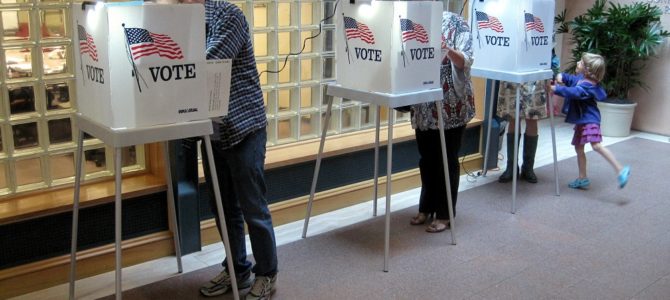The question of whether a vast, continental republic like ours can be successfully self-governed is as old as the American experiment itself. Sociology professor Neil Gross is the latest to answer the question in a recent New York Times op-ed — and his answer is a resounding no. He finds himself in agreement with the Ancient Greeks and Montesquieu, who believed self-government is possible only in small, homogenous polities, and in disagreement with America’s original political theorist, James Madison.
It was Madison whose arguments in Federalist 10, 45, and 46 are credited with successfully debunking the prevailing suspicion that self-government was only possible on a smaller, state level. Madison counterintuitively argued that self-government in a large republic was not only possible, but dependent upon geographic and social diversity. If you extend the sphere of a republic, “and take in a greater variety of parties and interests,” he wrote, “you make it less probable that a majority of the whole will have a common motive to invade the rights of other citizens”(#10).
The strength of a self-governing country lies in numbers. But widespread popular dissatisfaction with American democracy today has given the lie to Madison’s theories, according to Gross. “Two and a half centuries later, the accumulated social science suggests that Madison’s optimism was misplaced,” Gross wrote. “Smaller, it seems, is better.”
If Madison were alive today, he would likely share Americans’ dissatisfaction with the present form of American democracy. But he might say it’s not because he was wrong more than two centuries ago, but because he was right all along.
It is true that Madison argued an extended nation made self-government stronger, but equally important to this strength was the way powers between national and state-local powers were divided. The powers belonging to the federal government would be “few and defined.” The rest would belong to states and localities. This allocation would insure that the governments closest to the people would “extend to all the objects, which, in the ordinary course of affairs, concern the lives, liberties and properties of the people”(#45). As a result, the vast majority of the laws and policies Americans experienced in their everyday lives would be determined at levels of government with which they would “be more familiarly and minutely conversant”(#46).
Such a framework was designed not only to make government responsive to the will of the people, but also to insure domestic harmony by allowing each diverse locality to flavor their own government to their own tastes. The people of Vermont would govern themselves as they saw fit, while the people of Kentucky would as they saw fit, and so on, and so forth. By allowing difference, the constitutional framework of our self-government would insure unity.
If Americans today believe that democracy in America is not working well, as Madison would be likely to say, it is because we have departed from this unifying flexibility. In the last hundred years or so, there has been a gradual accretion of influence towards Washington and away from states and localities.
More and more, the laws and policies Americans experience in their everyday lives are made in some bureau or agency tucked away in Washington that we have never heard of and will never see. States are extorted into adopting federal mandates under the threat of losing federal grants. Every vacancy on the federal judiciary becomes a Cold War-like missile crisis between Left and Right, because every pseudo-legislative decision made by a federal court obliges us all.
Education, environmental policy, health care, socio-cultural issues, controlled substance policies — all are controlled at a central level and binding to all Americans at a time when we are increasingly cloistering ourselves into “like-minded communities.”
The laws we all follow have become one-size-fits-all, even as we have become increasingly ill-fitted to each other.
The upshot of this is that national government and politics has become a zero-sum game, and whatever the result, each loss, real or perceived, alienates half of America. After so many decades of this, the one thing everyone on both sides can agree on is that “our government” has been “hijacked” by someone or something else, and that we no longer have control of our own lives and futures. If you want an explanation for the sense of alienation that fueled Trump to victory, look no farther.
These bitter grapes of wrath are what centralization hath wrought.
Increasingly less different, we have become increasingly less unified — and much more dissatisfied. This is not because the framework designed by Madison and his generation has failed. It is because we have failed to follow that framework.
James Madison would tell us so.







